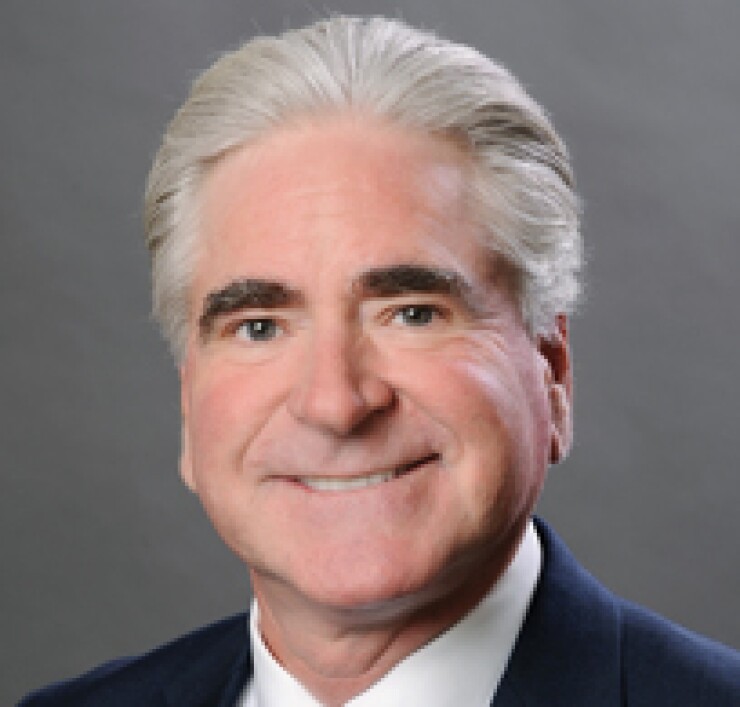
As a bill that could bring monumental changes to Fannie Mae and Freddie Mac works its way through the Senate, some credit union executives are concerned that larger players would have too many advantages at the expense of small lenders.
The proposed GSE reform legislation sponsored by Senate Banking Chairman Tim Johnson, D-S.D., and ranking member Mike Crapo, R-Idaho, leaves open the possibility large banks could wear three hats: as originators, aggregators and guarantors of mortgage loans.
Kenn Darling, chief lending officer for $4 billion Patelco CU, Pleasanton, Calif., said his biggest fear is that the Johnson-Crapo bill could create situations where smaller credit unions lose the ability to service mortgages.
"The large non-GSE aggregators could be servicing credit union mortgages, and they will use that as a cross-sell opportunity," Darling said. "When selling to GSEs, credit unions have the option to retain servicing, and most do."
In three to four years, if Fannie and Freddie truly go away ("even though that is hard to imagine," Darling noted), the larger institutions will "overtake" the secondary market, he predicted.
"That will create stress on credit unions, unless they are able to team up and become aggregators. There are rumblings that credit unions are entertaining the strategy of buying loans from other credit unions on a large scale. The smaller you are, the bigger the challenge. Some of the larger credit unions will be able to adjust to whatever the secondary market does, but the smaller ones may not have the expertise or the capital leverage."
Vince Salinas, Patelco’s VP of mortgage lending, said dominance of the market by large players is a "legitimate fear." He said GSE reform bills that propose some form of mutual association are steps in the right direction.
"There is so much money involved, and so many players, any change will be long and drawn out. Everyone will want a seat at the table," Salinas said. "There needs to be a body to insure we have free movement of capital. The mutual board should include credit unions, and any institution that is an approved Fannie or Freddy seller should automatically be approved to join.
"Credit unions and community banks need to have a place," he added.
Scott Norris, chief sales and marketing officer for $402 million CBC FCU, Oxnard, Calif., told Credit Union Journal he has written multiple comment letters on the proposed GSE reforms, in essence saying, "this is an incredibly bad idea."
"If the big banks take over there will be a big bank cartel," he declared. "They will force the little guys out because we cannot compete on that level. It will be a disaster."
According to Norris, the concept of making lenders selling loans to the secondary market have some skin in the game is a "brilliant idea" because it would force big banks to book better loans. Over his career at three credit unions Norris has sold approximately $2 billion in loans to Fannie Mae, and he has had two repurchases.
"The credit union model simply never will have the credit risk that the big banks have," he said. "The problem starts with underwriting and credit guidelines, which were corrupted by political pressures. Fannie Mae and Freddie Mac had strong guidelines for years, but were forced by Congress to change to add risk, and that risk is what blew up [during the housing meltdown]."
Norris supports a system that incorporates the current underwriting guidelines, which, he said, are "sound and have worked for years and years," and makes one change—all lenders have to keep skin in the game when they sell a loan.
"Then, they only would have themselves to fool," Norris said. "If a bank gets too creative and makes a crazy loan, it loses the first 10% on the loan. I would keep Fannie and Freddie, and would prefer they have an arm's-length relationship to the government. The GSEs are not a piggy bank for the government."
The one scenario that Norris does not want to see is big banks having control over the secondary mortgage market. He points to their track record as the reason.
Patelco's Darling said looking out five years or more it becomes difficult to forecast because of the CFPB and other regulators.
Also, he said credit unions today are getting a lot more sophisticated on jumbo mortgages, the buying and selling of nonconforming assets and other functions previously considered too complicated for the CU community.
"Predictions are difficult," he said, noting in the 1990s it was said no medium-sized banks would be around in 10 years, and supermarket branches would kill the traditional retail store. "Personally, it is hard to see Fannie and Freddy will go away completely. It is a large ship that is difficult to turn quickly without disrupting the financial system. If there is reform it will take several years."




